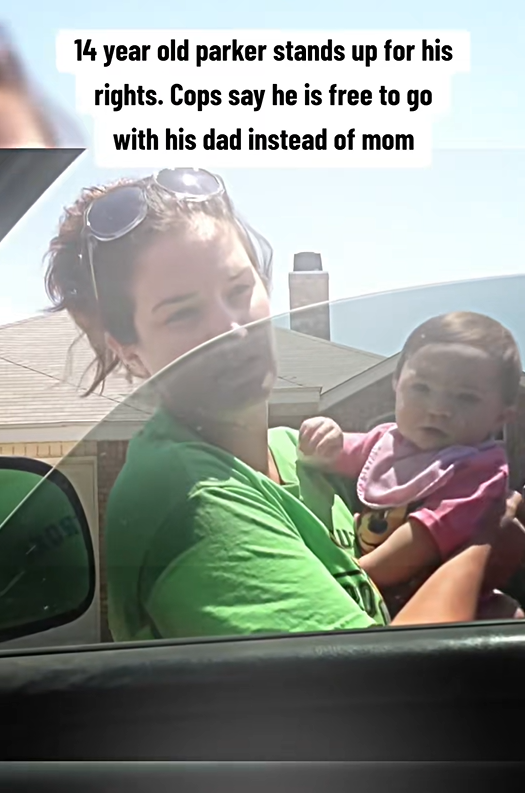It was supposed to be just another custody exchange… but for 14-year-old Parker, this day would change everything.
Standing outside his mother’s home, Parker took a deep breath as the police pulled up. His mom held his baby sister in her arms, tears welling in her eyes. Tension had been building for months — missed visits, arguments, and conflicting stories between both parents.
But this time, Parker had made up his mind.
“I’m not getting in the car with her,” he told the responding officer calmly. “I want to live with my dad.”
The officers, who had been called to keep the peace, took a step back and asked to speak with both parents separately. The mother insisted that Parker was being manipulated, that he was just “confused.” But Parker didn’t waver.
He explained how he’d spent most of the past year feeling unheard — being shuffled between homes, trying to make everyone happy while silently struggling himself. He said his dad listened, gave him stability, and made him feel safe.
The officers checked the custody agreement and confirmed something few families realize: once a child reaches a certain age — in many states, 14 — their voice starts to carry legal weight in custody decisions.
After verifying that Parker wasn’t in danger and that his father had a suitable home, one of the officers finally turned to the mother and said gently,
“Ma’am, he’s old enough to make this choice. You can’t force him. He’s free to go with his dad.”
The moment was heartbreaking. His mother’s expression shifted from anger to devastation. She clutched her baby tighter, realizing that Parker’s decision was final — at least for now.
Parker hugged her goodbye, promising to call, and then walked toward his dad’s car.
The officers watched as he climbed inside, wiping away tears but looking… relieved.
For the first time in a long time, Parker wasn’t being told what to do — he was being heard.
As one of the officers later said,
“It’s never easy when family gets involved. But today, that boy found his voice — and the law protected it.”
